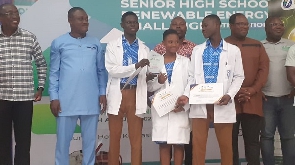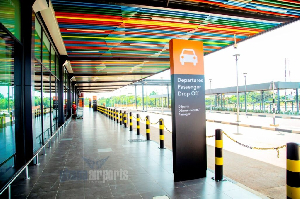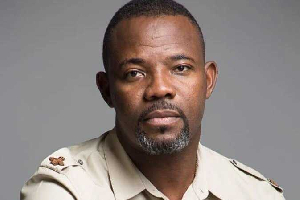The Ashanti Regional Director of Education, William Amankrah Appiah, has urged students, and authorities of the various Senior High Schools in Ghana to desist from focusing on the chew-and-pour system of studies and start practicing what they practically learn in school.
According to him, the Ghana Education Service's intention to change the system of learning into practical form is what has led to the introduction of TVET and STEM education by the Education Ministry.
He has however entreated students to use that opportunity to utilise the new system by using their hands to perform something out of what they are being thought. He said it was time students desisted from the chewing and pouring attitude and started developing an interest in practicals so they can have a bright future.
He made these statements during the 4th edition of the Energy Commission's Senior High Schools Renewable Challenge which took place in Kumasi under the theme; 'Mechanized Small-Scale Agriculture Using Renewable Energy Technologies'.
He continued by saying that this kind of education system will help the youth in SHS to be involved in the development of the country by renewing waste products from their various homes into useful ventures.
He said the diverse ways of these technologies being exhibited by the students if put into use, will help solve most of the challenges in the country’s agriculture system.
Eight regions that made it to the northern zone were represented by one best-performing school from each region.
Out of the eight, the best three (3) in addition to the best three performing schools from the southern zone were expected to compete at the national level.
Meanwhile, the participating schools that competed in the northern zone included; Wa SHS (Upper West Region), Ghana SHS (Northern Region), Serwaa Kesse Girls' SHS (Ahafo Region), Salaga SHS (Savannah Region), Dormaa SHS (Bono Region), Kwabre SHS (Bono East Region), Bolgatanga SHS (Upper East Region) and Walewale SHTS (North East Region).
Commending the organizers for a wonderful event, the regional director of education pleaded with them to expand the number of participating schools so that many schools could also join the program.
On his part, the Director of Renewable Energy and Energy Efficiency at the Ministry of Energy Commission, Kofi Agyarko said the challenge was organised so that authorities could know how best the students were coping with the new system. He said it was also meant to encourage students to put what they learn into practice.
He further revealed that the three best schools out of the eight that competed in the northern zone were expected to compete at the national level in addition to the other best three (3) performing schools from the southern zone, making the finalists six (6).
He said the selection of winning schools was usually based on how the schools will perform according to the instructions given by organisers, good performance during the presentation, and sometimes the eloquent flow of words.
Commending the schools for their best performances, the director continued that, there was going to be a great reward for the school which will emerge as the winner at the national level.
He finally encouraged parents to motivate their children to involve themselves in this activity since it was a greater opportunity that could sell their talents and great idea to the international community.
Meanwhile, the best three performing schools that made it to the finals at the national level at the end of the Northern Zone competition included; Kwabre SHS, Dormaa SHS, and Serwaa Kesseh Girls' SHS, respectively.
Some of the winning students who spoke to this reporter expressed joy and however, pleaded for their support from sponsors that could help them do more to save the agric sector. Some of them also expressed optimism about crowning the national champions.
Regional News of Tuesday, 15 August 2023
Source: Nana Peprah

















